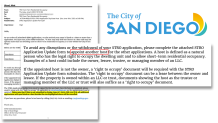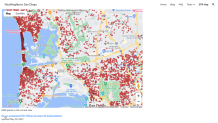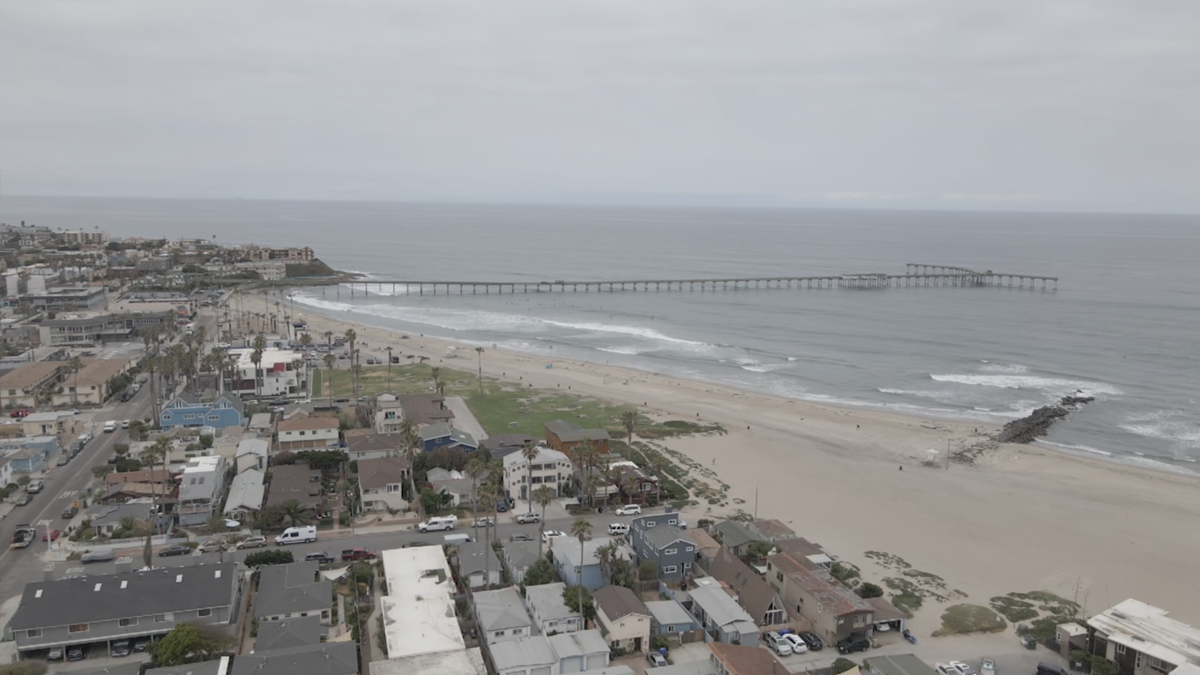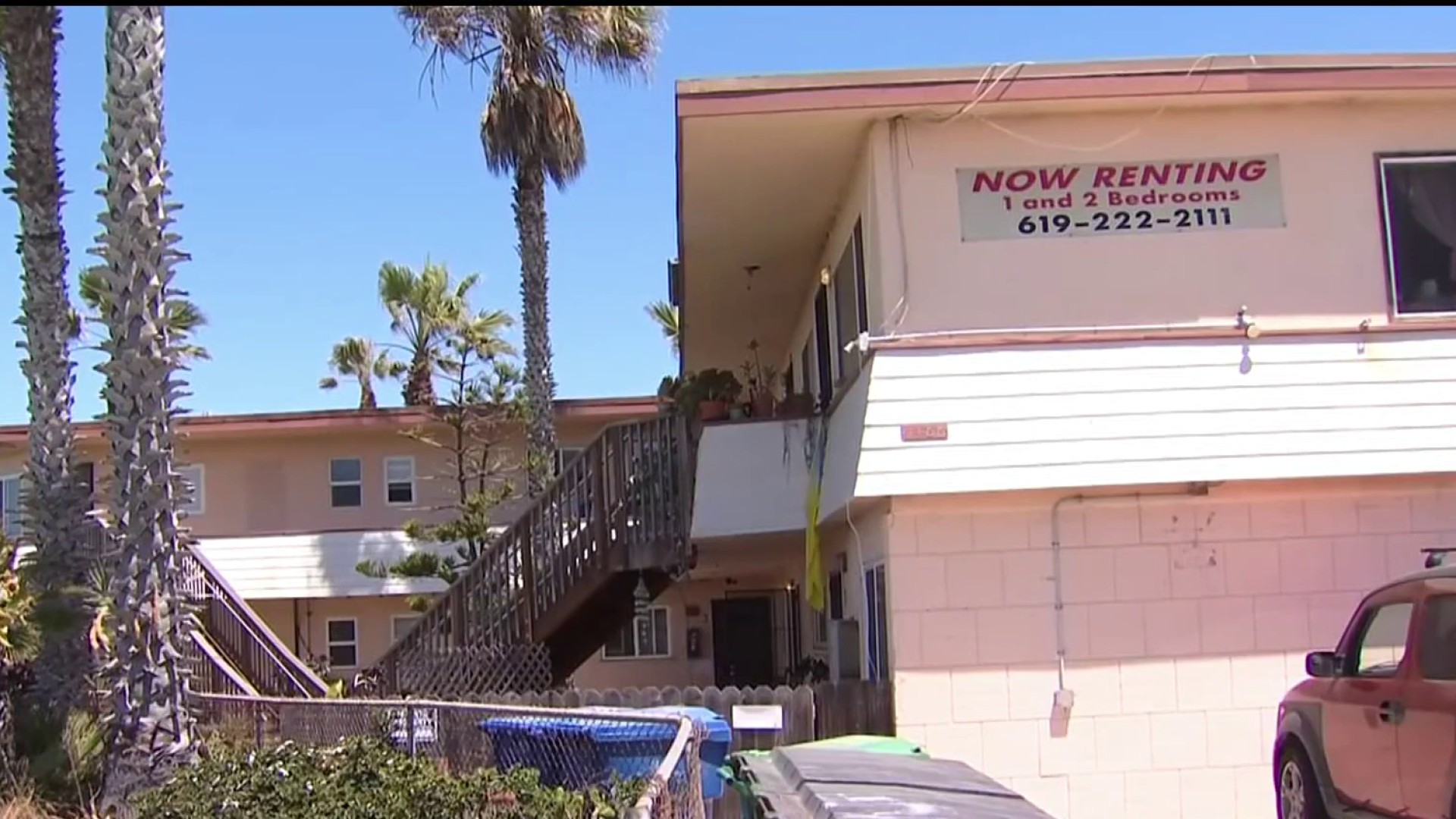The wording in the city of San Diego’s Short Term Residential Occupancy ordinance is clear — “A host may only hold one license at a time” — but that provision is exactly what a city spokesperson admits the city treasurer’s office violated when it began issuing licenses in May.
The license is the kind you need if you want to list an apartment or home on sites like Airbnb or VRBO. San Diego’s City Council spent years working on the language of the STRO ordinance. It marks the city’s latest attempt to regulate an industry often accused of shrinking the housing and rental market and decreasing quality-of-life for locals by catering to vacationers.
Each short-term rental license requires a “host.” That person must have the legal right to occupy the unit. Again, that host can only have one license, according to the ordinance.
NBC 7 Investigates analyzed the city’s license data from May, however, and noticed that 19 hosts had more than one license. They weren’t hard to spot, either. Many listed the same name and same phone number as the host of multiple properties. We wanted to know why the city treasurer’s Office, which issues licenses, didn’t catch repeats during the application process.
Get San Diego local news, weather forecasts, sports and lifestyle stories to your inbox. Sign up for NBC San Diego newsletters.
In a statement, a spokeswoman for the treasurer’s office told NBC 7 Investigates its system was designed to prevent duplicate hosts, but “… there are instances where the system control failed.”
We pass laws but, of course, without accountability or enforcement, they’re not very useful.
Jay Goldberg, Nice Neighbors
The spokesperson went on to say that the city reviews license data every month to identify anomalies like duplicate hosts but said the city does not keep track of how often that happens.
License holders instructed how to use 'loophole'
Several weeks after NBC 7 started asking the city questions, we noticed the city updated its license database with fewer duplicates. Phone conversations with some of those hosts and a public records request revealed what happened: The city emailed the hosts and instructed them to “appoint another host” or risk losing their license. Hosts had one week to respond.

In June, NBC 7 Investigates revealed a loophole in the city’s law that allowed one property owner to obtain 114 short-term rental licenses in Ocean Beach alone. He told us he did that by asking friends and family to act as hosts.
The city treasurer and city attorney told NBC 7 Investigates that on its face, using other people as hosts is not a violation of the ordinance.
On Thursday, the city attorney’s office, which helps draft ordinances like this, sent NBC 7 this statement:
“The ordinance does not prohibit owners from working with multiple hosts to license multiple properties for use as short-term rentals, provided both owners and hosts follow all other obligations and requirements of the ordinance. Under the city charter, the administration and the council make policy decisions on measures like the Short-Term Rental Ordinance, while the city attorney’s office provides legal counsel. Our office will continue to work with the administration to refine this ordinance as necessary and to pursue enforcement against violators.”
The spokesperson also told NBC 7 that viewers “should be aware of the financial and other risks to which they are exposing themselves when allowing themselves to be listed as STRO hosts. As the city site makes clear, 'Hosts who fail to comply with all STRO requirements risk enforcement actions being taken against them, up to and including civil penalties.' "
Calls for changes to ordinance and improvements to licensing
Hillcrest homeowner Jay Goldberg has some experience dealing with short-term rentals. He moved here from San Francisco in 2020 and discovered quickly that the condo next door was one of dozens of short-term rentals run by the same management company.
“I noticed the clientele coming in was not work people,” Goldberg said. “It was more like college students looking to party. It was continual one-night stays with that kind of behavior, where people would be out smoking at 4 in the morning waking me up.”
Now, Goldberg's neighbor only hosts guests who stay for at least 30 days, but that arrangement didn’t come easily.
“There were times that I felt powerless,” Goldberg said. “Very emotionally, it felt like the only way that I could stop that was by having money. And I’m fortunate enough where I can do that. And I felt that there are a lot of people in San Diego who have to put up with this who don’t.”
That’s why after his ordeal, Goldberg, who works for Google, spent a year of his free time digging through city records and data. His goal was to track things like who owns and manages short-term rentals and where. Goldberg puts all of it online for free, with the goal of being a watchdog for how the city regulates these rentals. He calls the project Nice Neighbors.

“We pass laws but, of course, without accountability or enforcement, they’re not very useful,” Goldberg said.
Jerry Locke agrees. He’s a board member with the San Diego Short-Term Rental Alliance, a nonprofit group made up of hundreds of hosts.
“Most hosts aren’t against regulations,” Locke said. “I think they want it. There’s an air of illegitimacy that we want to start getting rid of.”
Locke owns and runs two short-term rental units, both in Ocean Beach. He says there needs to be a space for these kinds of tourism options.
“When you travel, hotel rooms don’t fit for everybody,” Locke said. “I like seeing the pictures with families using our things or being part of that. Like bringing families together in our house is something that’s invaluable. I don’t think you could put a price on that.”
I think the city has a lot to improve on. It's not perfect. We’re not expecting it to be perfect. But we’re expecting it to be better.”
Jerry Locke, San Diego Short-Term Rental Alliance
Locke thinks property owners should be able to have more than one license and said a cap on the number allowed could be useful, but he didn’t want to put an exact number on it.
“I wouldn’t say there shouldn't be a cap,” Locke told NBC 7. “I would want it to be smart. I would want it to prevent the loopholes that already occurred. Right? So, a cap for sure.”
Locke watched NBC 7's prior investigation that exposed how the city allowed one man to get 114 licenses for units in Ocean Beach.
“I was appalled,” Locke said. “I think all of us were. We were just like, 'Oh, my gosh. How did they do that?' ”
Locke said the ordinance needs clarity and questions whether the city has enough resources to back its ordinance.
“I think the city has a lot to improve on,” Locke said. “It's not perfect. We’re not expecting it to be perfect, but we’re expecting it to be better.”
NBC 7 Investigates also noticed that the city recently deleted the phone numbers of hosts from its online license database. It’s the list we used to track down what was really going on with all the Ocean Beach listings and allowed us to uncover the loophole last month.
In a statement, the city told us, “We removed this information to eliminate any confusion on who should be contacted to respond to a complaint related to the property.”
How to see which homes are licensed and how to report violations
You can find out which properties are STRO license holders by visiting the city of San Diego's website. That page also allows neighbors to submit complaints. The city also created an interactive map showing licenses.



